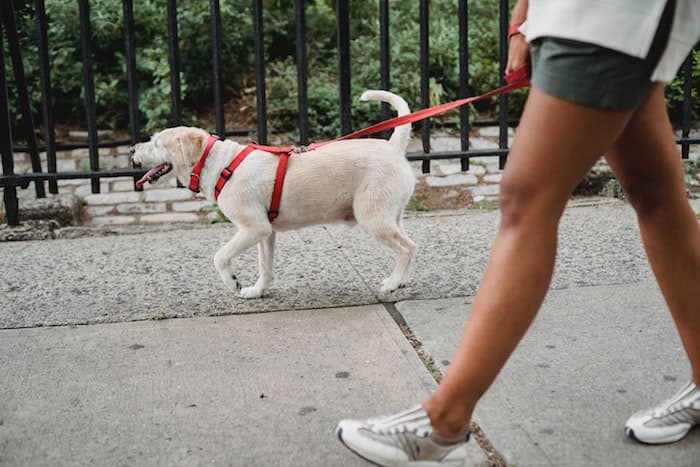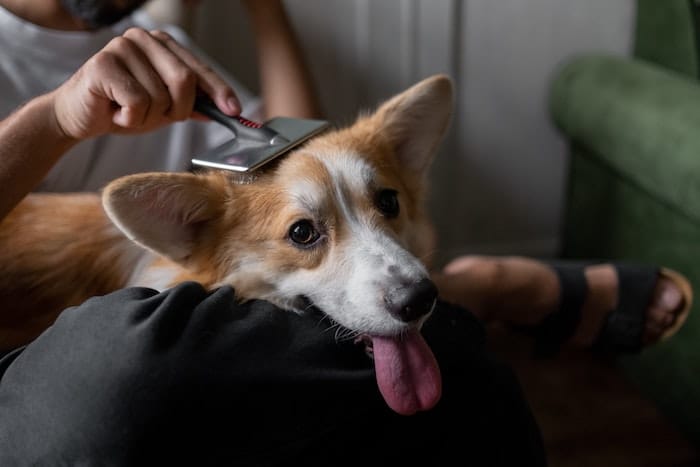Owning a dog can be one of the most fulfilling experiences in life. Dogs are incredibly loyal companions and provide unconditional love and affection that helps you to feel happier and healthier. But being a responsible dog owner is more than just swimming in puppy kisses and belly rubs. It’s about understanding the responsibilities of owning a furry friend. Here are six essential tips for responsible dog ownership.
1. Schedule Regular Vet Visits
Taking the time to schedule regular vet visits for your pet is one of the best things you can do for their health and happiness. Not only will catching small issues before they become bigger problems save both time and money, but it also allows your vet to monitor changes in your pet’s condition over time. Pets benefit from routine check-ups, which can prevent or reduce painful conditions or even illnesses they may not exhibit physical signs of yet. Regular visits also provide an excellent opportunity to discuss concerns with your vet and develop a tailored plan for improving/maintaining your pet’s overall health. It’s also vital to monitor any changes in behavior or appearance. If something seems off, consult with your vet as soon as possible.

2. Provide Proper Nutrition
Proper nutrition is an essential part of dog ownership. Feeding your dog high-quality food specific to its size and activity level will help keep it healthy and active. Supplementing your dog’s diet with fresh fruits and vegetables can provide additional fiber, vitamins, minerals, and other important nutrients. In the words of the team at prodograw.com/shop/raw-dog-food/, when choosing raw dog food for your furry friend, choose one that meets their specific needs. Whether you’re looking for something containing essential vitamins and minerals, or something with extra fat content for healthy joints and coats, be sure to take the time to find what specifically works best for your pup. Remember to pay attention to portion sizes. Overfeeding can lead to obesity, while underfeeding can result in malnutrition. If you have questions about your dog’s dietary needs, consult a veterinarian for proper guidance.
Consider getting multivitamin dog chews.
3. Train Your Pup Early On
Training your pup early on is essential to ensure that they develop into an obedient and well-behaved dog. Establishing ground rules and boundaries while young makes it easier for them to understand and adhere to these expectations as they age. A pup’s natural energy can be used to its advantage by rewarding desired behaviors, such as sitting or staying in one spot, with treats or verbal praise. Teaching basic commands will help prevent the dog from making unwanted messes or getting into dangerous situations when out with you. It may take time before your dog learns how you’d like them to behave, but perseverance and consistency with training will pay off in the end.

4. Provide Plenty of Exercises & Mental Stimulation
Ensuring a dog has plenty of exercises, and mental stimulation is an important part of dog ownership. Exercise not only promotes physical health but also helps to reduce boredom, fear, aggression, and other behavioral problems. Mental stimulation is just as vital, as it keeps your dog engaged and provides meaningful interaction between dog and owner. Engaging in walking, playing hide-and-seek, or teaching tricks helps stimulate your beloved dog’s mind and body. Regular engagement in physical and mental activities can help bring out the best in a dog’s behavior, leading to a happy pup and a positive owner-pet relationship.
5. Maintain Your Dog’s Hygiene
A regular hygiene routine is essential to your dog’s long-term health and happiness. Investing in professional grooming helps keep their fur looking clean and healthy while trimming nails prevents claw problems like ingrown nails that can lead to infection. Clean and dry ears ensure no parasites are setting up shop, while regularly inspecting eyes and teeth helps you catch any potential issues at their earliest stages. A regular check for fleas and ticks is key in preventing an infestation and other parasitic illnesses from developing over time. A comprehensive hygiene plan will help keep your pup looking good and feeling great.

6. Dog Proof Your House
Dog-proofing your house is essential to help protect both your furry friend as well as your belongings. Start in the kitchen. Install cabinet locks or childproof latches and keep dangerous objects like knives and breakable items out of reach. You can also block certain sections with baby gates so the pup won’t get into trouble. Just make sure to still provide them with access to toys and areas where they can relax.
In the living room, try to move any hazardous wires or electrical outlets away from their grasp, use cord protectors if necessary and provide plenty of chew toys for distraction. Remember the outdoors. Install a fence at least 6 feet tall that is secure enough to contain active dogs, and arm yourself with deterrents like water bottles or noisemakers for aggressive behavior.
While following these tips may seem like a lot of work, they are vital for keeping you and your dog safe and healthy. By vaccinating, spaying/neutering, leashing, cleaning up after, training, and exercising your dog regularly, you’ll be taking the necessary precautions to keep them happy and healthy both physically and mentally. These tips will help ensure you and your pup live happy lives together full of love & adventure.
Related Reading
